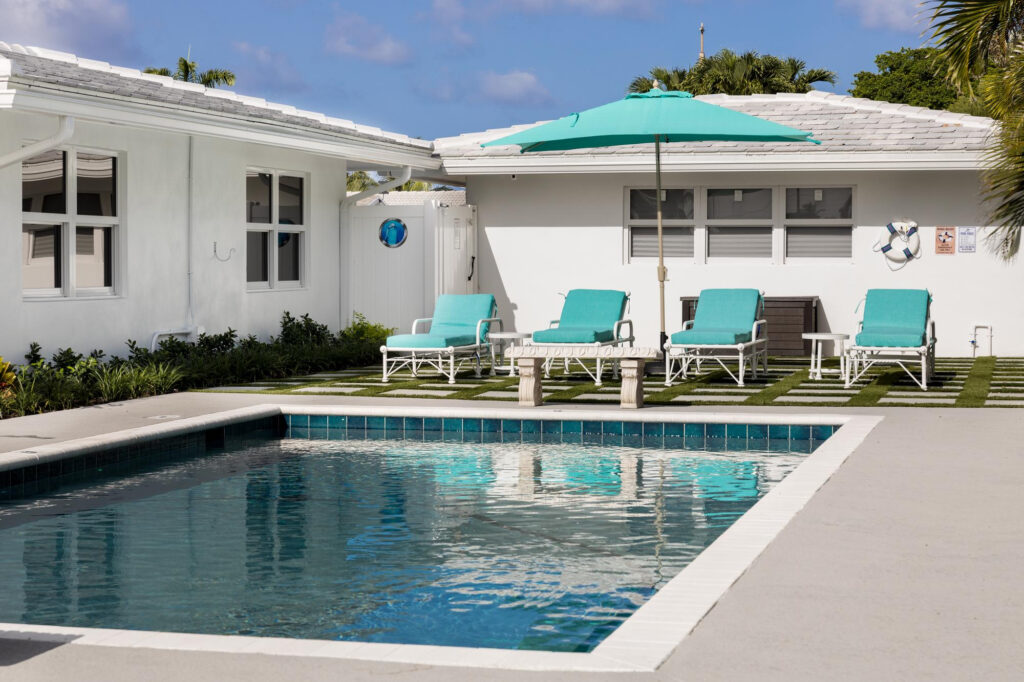Routine Pool Maintenance Schedules: Weekly, Biweekly, Monthly
Discover how to maintain your pool effectively with comprehensive maintenance schedules for weekly, biweekly, and monthly care. Keep your pool sparkling clean!
Maintaining a pool can seem like a daunting task, but establishing a routine maintenance schedule is essential for keeping your pool clean, safe, and inviting. This blog post delves into the importance of regular pool maintenance, exploring weekly, biweekly, and monthly schedules that can simplify the upkeep of your aquatic oasis. Whether you’re a seasoned pool owner or new to the world of pool care, understanding these maintenance routines will help you enjoy your pool to the fullest while extending its lifespan.
Why Routine Pool Maintenance is Essential
– Health and Safety: Regular maintenance is crucial for ensuring that your pool water remains safe for swimming. Bacteria and algae can quickly proliferate in unmaintained water, posing health risks to you and your family. – Cost-Effective: A well-maintained pool is less likely to incur costly repairs. By following a regular maintenance schedule, you can prevent issues like equipment failure or significant water quality problems before they escalate.- Aesthetic Appeal: A clean and well-maintained pool is visually appealing. Whether you are hosting a party or simply enjoying a quiet evening swim, a sparkling pool enhances the overall experience.- Longevity of Equipment: Regular maintenance ensures that your pool equipment operates efficiently, prolonging its life and reducing the need for premature replacements.By implementing a structured maintenance schedule, you can enjoy all the benefits of your pool while mitigating risks and costs.
Weekly Pool Maintenance Tasks
Weekly maintenance is crucial to ensure your pool remains in top condition. Here are the essential tasks you should perform each week:- Skimming and Vacuuming: Use a skimmer net to remove leaves, insects, and debris from the surface of the water. Vacuum the pool to clean the bottom and walls to prevent algae growth.- Brushing the Pool Walls: Algae tend to cling to the walls and steps of the pool. Regular brushing removes these contaminants and prevents buildup.- Testing Water Chemistry: Use a pool testing kit to check pH, chlorine levels, alkalinity, and other important water parameters. Ideally, pH should be between 7.2 and 7.8, and chlorine levels should be maintained between 1-3 ppm for safe swimming.- Adjusting Water Levels: Ensure the water level is appropriate for skimming and circulation. If it’s low, add water as needed.- Cleaning Skimmer and Pump Baskets: Check and clean the skimmer and pump baskets to ensure proper water flow and filtration.- Running the Pump and Filter: Run your pool pump for at least 8-12 hours daily to ensure adequate water circulation and filtration.This weekly routine can drastically improve the quality of your pool water and overall cleanliness, setting the stage for more in-depth maintenance tasks.
Biweekly Pool Maintenance Tasks
In addition to weekly tasks, biweekly tasks help keep your pool in optimal condition. These may include:- Deep Cleaning: Every two weeks, perform a deeper cleaning of your pool. This includes checking for stains on the pool surface and using appropriate cleaning solutions to address them.- Backwashing the Filter: If you have a sand or diatomaceous earth (DE) filter, backwashing every two weeks helps maintain filtration efficiency by removing dirt and debris from the filter media.- Inspecting Equipment: Take time to inspect your pool equipment, including pumps, filters, and heaters. Look for any signs of wear or damage that may require repairs or replacement.- Monitoring Algae Growth: Pay attention to any early signs of algae growth, especially in shaded areas. Treat any algae problems promptly to prevent them from spreading.- Adjusting Chemical Levels: While weekly testing is important, every two weeks is an excellent opportunity to adjust any imbalances in your chemical levels as needed.By adhering to a biweekly maintenance schedule, you ensure that minor issues are addressed before they become significant headaches.
Monthly Pool Maintenance Tasks
Monthly maintenance tasks are essential for long-term pool health. Regular monthly checks can help you catch potential problems before they develop into more serious concerns:- Comprehensive Water Testing: In addition to the weekly tests, perform a comprehensive water analysis to check for calcium hardness and stabilizer levels. Adjust as needed to keep your water chemistry balanced.- Inspecting the Pool Cover: If you’re using a pool cover, check it for any debris or damage. Clean and repair it as necessary to ensure it remains effective during the off-season.- Calcium and Algaecide Treatments: Depending on your pool’s water chemistry, you may need to add calcium hardness increaser or algaecide once a month to maintain ideal conditions.- Cleaning Tiles and Grout: Monthly, inspect and clean the tiles and grout around the pool to prevent buildup of calcium and grime. Use a specialized cleaner or a mixture of vinegar and baking soda for effective results.- Professional Inspection: Consider hiring a professional to conduct a thorough inspection of your pool system, especially if you notice any irregularities or if you’re preparing to open or close your pool for the season.A monthly maintenance routine ensures that your pool remains in peak condition and that any underlying issues are promptly addressed.
Combining Routine Maintenance with Professional Help
While maintaining a routine maintenance schedule is essential, combining your efforts with professional assistance can yield even better results. Here’s how to find the right balance:- Evaluate Your Skills: Assess your comfort level and knowledge about pool maintenance. If you’re unsure about handling specific tasks, don’t hesitate to consult professionals.- Hire Professionals for Complex Tasks: For tasks like equipment repair or major cleaning, it’s often best to seek expert help. Professionals can perform these jobs efficiently and effectively.- Learn from the Experts: Engaging with professionals can provide you with valuable insights and tips on best practices for pool care. Consider taking advantage of training programs like those offered by
Superior Pool Routes Training.- Regular Check-Ups: Schedule periodic check-ups with pool maintenance experts to ensure that your pool is always in excellent condition and to catch any potential issues early.Combining your routine maintenance efforts with professional help ensures that your pool remains a safe and enjoyable place to spend your time.
Conclusion
Establishing a clear routine for pool maintenance is vital for keeping your pool clean, safe, and enjoyable. By adhering to weekly, biweekly, and monthly schedules, you can significantly enhance the quality of your pool water and reduce the risk of costly repairs. Remember, a well-maintained pool is not only a health and safety measure but also a means to maximize your enjoyment.If you’re looking to start your own pool service business or expand your existing routes, consider exploring
Pool Routes For Sale for opportunities that can help you achieve your goals. With the right knowledge and tools, you can transform your pool maintenance efforts into a successful venture. Don’t wait—take action now to ensure your pool remains a sparkling oasis for years to come!



